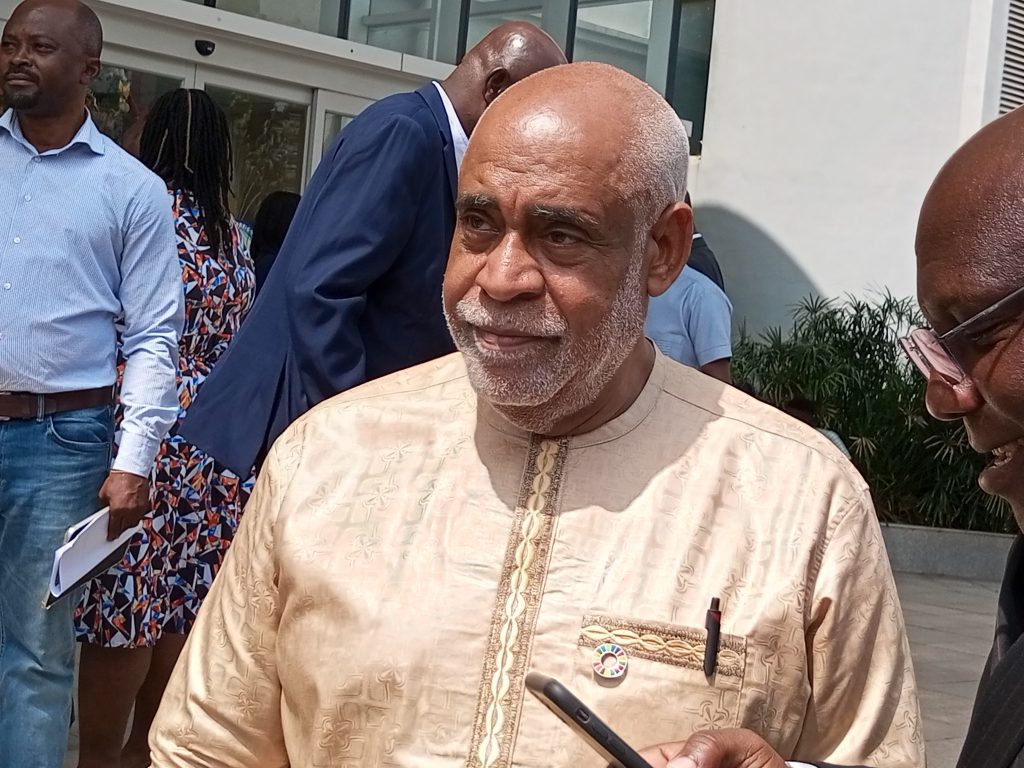By Iddi Yire
Accra, Dec. 13, GNA – Mr Charles Abani, United Nations Resident Coordinator in Ghana, has reiterated the UN’s commitment to supporting on-going drug policy reform in Ghana.
He said the on-going drug policy reform in Ghana would effectively and constructively address complex drug issues while concurrently upholding, protecting and respecting the human rights of all, including people who use drugs.
“The United Nations family in Ghana stands ready to support you in this noble endeavour,” Mr Abani stated in his remarks at the opening of the National Dialogue on the International Guidelines on Humans Rights and Drug Policy in Ghana.
The two-day workshop, which is being organised in cooperation with UN agencies and civil society organisation seeks to create a space for State representatives, civil society and other stakeholders, including relevant Commissions and experts, to discuss drug policy-related issues from human.
Mr Abani said the UN in the Ghana- strongly believe that the International Guidelines on Human Rights and Drug Policy was the best tool at our disposal for the implementation of human rights commitments of UN General Assembly Special Session (UNGASS) 2016 and the 2018 UN System Common Position.
Adding that all human rights issues – which were included both in the Outcome Document of UNGASS 2016 and in the Common Position – were elaborated with further guidance in the Guidelines.
He expressed the hope that national authorities in Ghana, civil society organisations and other stakeholders in the Ghana would use these important Guidelines for advancing the recent drug policy reforms and make such reform fully human rights compliant under the leadership of the newly established Narcotic Control Commission.

Mr Abani said the COVID-19 pandemic had brought to the global community the basic truth that health and human rights were interconnected, and that human rights-driven efforts were crucial if Member States of the UN were to get on track to achieve the SDGs.
He said the pandemic also had made the criticality of science and evidence more important than ever – indeed a principle and practice that should also be the basis for both global as well as national drug policies.
Mr Abani noted that UN Secretary General’s Call to Action for Human Rights has emphasized that it was their common responsibility to put human rights at the centre of all policies and decision-making processes; including those related to drug control.
He said for too long, punitive and coercive efforts to address drug-related challenges had exacerbated stigma and discrimination, relied excessively on incarceration, and caused tremendous suffering.
He said in line with the international drug control framework, all states had to pursue a holistic approach that unites health, criminal justice and social services, and that respects and protects human rights.
“We are pleased to see that Ghana is one of key countries leading the world in pursuing such holistic approach. The current drug policy reform in Ghana clearly demonstrates it,” Mr Abani said.
He said most recently, this was further exhibited by Ghana at the UN – during the adoption of the General Assembly resolution on the drug related matter, which put people, human rights and health at the centre of the world drug policy.
Mr Ambrose Dery, Minister of the Interior, said the Government was committed to ensure that drug laws and policies were consistent with Ghana’s obligations under international human rights treaties that Ghana has ratified.
Mr Thomas Mbomba, a Deputy Minister of Foreign Affairs and Regional Integration, said it was important that Ghana’s drug laws reflected the right responses to her situation and ensure that her people lived in good health, peace, prosperity, dignity and security.
Mr Yaw Akrasi Sarpong, a former Executive Secretary of the Narcotic Control Board, said the alignment of Ghana’s drug policies with development remains challenging.
He noted that the International Guidelines on Human Rights and Drug Policy called for governments to address the root causes for which people and communities cultivate illegal crops such as cannabis, and to guarantee the right to an adequate standard of living for these communities, which means that they should be provided with a viable and sustainable economic alternative.
GNA